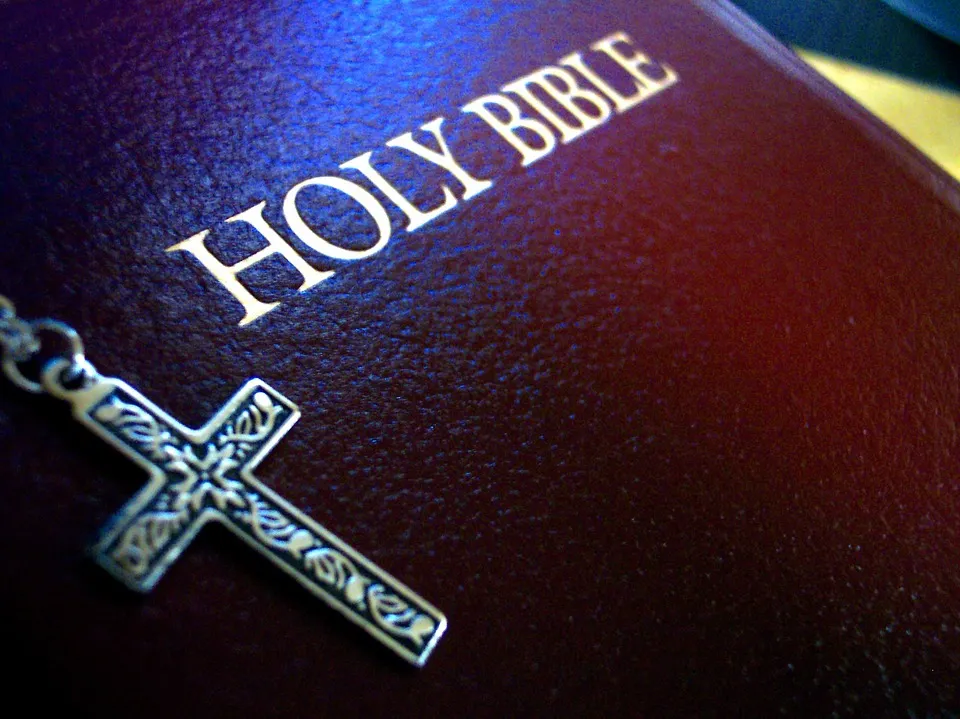The Davidic Covenant is one of the most significant covenants in the Old Testament, with promises that are still relevant to us today. In this post, we will explore the history and context of the covenant, its promises, and the implications of this covenant for the coming of the Messiah. We will also examine the theological and practical applications of the Davidic Covenant in our relationship with God. Read on to learn more about this important aspect of biblical history.
The history and context of the Davidic Covenant
Before we delve into the specifics of the Davidic Covenant, it’s important to understand the historical and cultural context in which it was made. King David, the namesake of the covenant, was a pivotal figure in the history of Israel. He was chosen by God to be the second king of Israel and established Jerusalem as its capital. David was described as a man after God’s own heart and is considered one of the greatest kings in Israel’s history.

During David’s reign, he desired to build a temple for God. However, God revealed to David that it wouldn’t be him who would build the temple but his son who would reign after him. It was during this conversation that God made the Davidic Covenant, promising to establish David’s kingdom and throne forever.
The significance of this covenant cannot be overstated. David’s dynasty had a profound impact on the history of Israel. He became the progenitor of a line of kings that stretched all the way to Jesus, who was known as the “son of David. Through the Davidic line, God had promised to provide a savior for his people who would redeem them and restore them to God.

The Davidic Covenant also solidified the relationship between God and Israel. It was a promise of faithfulness and a reminder that even in times of disobedience, God would not forget his people. It was a covenantal relationship grounded in mutual promises and faithfulness.
Overall, the Davidic Covenant is a testament to God’s covenantal nature. He is a God who makes promises and keeps them, even when it costs him dearly. The establishment of the Davidic line was a profound expression of God’s grace and love for his people, one that reverberates throughout the Old Testament and beyond. In the next section, we’ll explore the promises made in the Davidic Covenant.
- The establishment of Jerusalem as the capital of Israel
- The place of Davidic line of kings in Israel’s history
- The lineage of Jesus as the “son of David”
- The nature of God’s covenant with His people
- The permanence of God’s promises.
The promises made in the Davidic Covenant
As we dive into understanding the Davidic Covenant, it’s important to understand the promises that were made within it. The Davidic Covenant is outlined in 2 Samuel 7 and 1 Chronicles 17, and is characterized by a number of promises given by God to King David and his descendants.
One of the key promises made in the Davidic Covenant is that David’s royal lineage will endure forever. This is closely tied to the promise that his kingdom will also remain forever. In 2 Samuel 7:13, for example, God declares that “I will establish the throne of his kingdom forever.” This promise of perpetual kingship in David’s line is confirmed in several other places in the Old Testament as well.
Another key promise in the Davidic Covenant is that David’s descendant will build a temple for God. In 2 Samuel 7:13, God says, “He is the one who will build a house for my Name.” This promise is also confirmed in 1 Chronicles 17:11-12, where God declares that “I will raise up your offspring to succeed you… He is the one who will build a house for me, and I will establish his throne forever.”
The Davidic Covenant also includes promises related to the land of Israel. In 2 Samuel 7:10, God says to David, “I will provide a place for my people Israel and will plant them so that they can have a home of their own and no longer be disturbed.” This promise is closely connected to the promises made to Abraham, Isaac, and Jacob regarding the land of Canaan.
Throughout the Davidic Covenant, the promises made by God are covenantal in nature, meaning there are conditions and responsibilities that the people must uphold. For example, in 2 Samuel 7:14, God tells David, “I will be his father, and he will be my son. When he does wrong, I will punish him with a rod wielded by men, with floggings inflicted by human hands.” God’s promises were dependent on the obedience and faithfulness of the king and his descendants.
Overall, the promises made in the Davidic Covenant were central to Israel’s understanding of their history and their future. They looked to the covenantal promises as a sign of God’s faithfulness and his continued care for their people. The Davidic Covenant played an important role in establishing the monarchy in Israel, and in pointing to the coming of the Messiah – a descendant of David who would fulfill the promises made by God.
In the next section, we’ll delve deeper into how the Davidic Covenant relates to Israel’s monarchy and the throne of David.
How the Davidic Covenant relates to Israel’s monarchy and the throne of David

The Davidic Covenant, as laid out in 2 Samuel 7, plays a significant role in the establishment and continuation of Israel’s monarchy. It promised an everlasting throne for David’s descendants and a kingdom that would never fall.
Here are three key points to understand how the Davidic Covenant relates to Israel’s monarchy and the throne of David:
Royal lineage: The Davidic Covenant established a special royal lineage, which became known as the Davidic dynasty. David himself was anointed by God to be king, and his line continued through Solomon and beyond. This established a unique connection between Israel’s monarchy and God’s covenantal promises.
Promise of a never-ending kingdom: The Davidic Covenant’s promise of an everlasting kingdom was a central aspect of Israel’s identity. It offered hope and stability to the Israelite people, who had experienced political unrest and foreign oppression for centuries. This promise would be passed down through generations as a reminder of God’s faithfulness and commitment.
Messiah connection: The Davidic Covenant promised that one of David’s descendants would be the Messiah, the savior of Israel and the world. This was foretold in numerous Old Testament prophecies and is a crucial aspect of Christian theology. Jesus’ lineage can be traced back to David, fulfilling this aspect of the covenant.
Overall, the Davidic Covenant is a crucial component of Israel’s history and theology. It established the royal lineage of the Davidic dynasty, promised an eternal kingdom, and provided hope for a future Messiah. These covenantal promises and faithfulness have been passed down to Christians today as a reminder of God’s redemptive plan for humanity.
If you are interested in exploring more about the Davidic Covenant and its theological implications, consider studying covenantal theology and its various applications. The principles laid out in the covenant can be applied to our own relationship with God, emphasizing the importance of obedience and faithfulness.
The significance of the Davidic Covenant in the coming of the Messiah
The Davidic Covenant is a key element in understanding the prophetic significance of the Old Testament and the coming of the Messiah. In the covenant, God promises that a king from David’s line will sit on the throne of Israel forever. This promise was fulfilled by Jesus, who is a descendant of David and who is described as the “Son of David” in the New Testament.
The coming of the Messiah was foretold in numerous prophecies in the Old Testament, including the Davidic Covenant. In 2 Samuel 7:12-16, God promises David that his son will build a temple for God and that his kingdom will be established forever. This kingdom is seen as being fulfilled in the coming of Jesus and the establishment of the Kingdom of God.
The Davidic Covenant is also significant in terms of the temple. God promises that he will establish David’s throne forever and that his son will build a temple for him. This is seen as being fulfilled in the coming of Jesus, who is the cornerstone of the temple of God (Ephesians 2:20-22) and who made a new covenant with his people through his death and resurrection (Matthew 26:28).
The theological implications of the Davidic Covenant are vast and far-reaching. The covenant represents God’s faithfulness to his promises, which he fulfills in his own time and in his own way. It also represents the idea of covenantal promises and faithfulness, which is a key theme in the Bible. The covenant emphasizes the importance of obedience to God and the role that humans play in participating in the fulfillment of God’s promises.
For Christians, the Davidic Covenant is an important foundation for understanding the role of Christ as the Messiah and the establishment of the Kingdom of God. It highlights the eternal nature of God’s promises and the hope that we have in the salvation through Jesus.
In terms of practical application, the Davidic Covenant reminds us of the importance of faithfulness to God’s promises and obedience to his commands. It encourages us to trust in his faithfulness and to participate in the fulfillment of his plans for us and for the world. As we seek to live in covenantal relationship with God, we can learn from the example of David and his faithfulness to God, even in the midst of trials and challenges.

In summary, the Davidic Covenant is a key element in understanding the prophetic significance of the Old Testament and the coming of the Messiah. It highlights God’s faithfulness to his promises and the importance of obedience to his commands. For Christians, it is an important foundation for understanding the role of Christ as the Messiah and the establishment of the Kingdom of God.
Theological implications of the Davidic Covenant
The Davidic Covenant is one of the most significant covenants in the Bible. It has not only shaped the history of Israel but also played a crucial role in the coming of the Messiah.
Here are some theological implications for the Davidic Covenant:
Covenantal Theology: The Davidic Covenant is an example of the covenantal relationship between God and humans. It shows that God is a covenant-making God who makes promises to his people and expects obedience in return. God’s covenantal promises are not just temporal but also eternal.
Covenantal Promises: The promises made in the Davidic Covenant were not just for David but also for his descendants. The promise of a perpetual kingdom and a throne in Jerusalem is significant. It demonstrated God’s faithfulness to his promises and shows that he fulfilled his promises even when humans failed to obey him.
Covenantal Faithfulness: The Davidic Covenant shows that God is faithful to his promises, even when humans are not. The fact that the covenant was fulfilled in the coming of the Messiah shows that God’s faithfulness is not dependent on human obedience but on his own character.
Covenantal Relationship: The Davidic Covenant is the basis of the covenantal relationship between God and his people. The covenant shows that God desires a relationship with his people, not just obedience. God’s promise to establish a perpetual kingdom with David and his descendants is a sign of God’s desire to dwell with his people.
Redemption: The Davidic Covenant points to the ultimate redemption offered by the Messiah. The promise of a king and a kingdom was fulfilled in the coming of Jesus Christ. Through his death and resurrection, he established a new and eternal kingdom, fulfilling the promises made in the Davidic Covenant.
Applying the principles of the Davidic Covenant to our own relationship with God can help us understand the importance of covenantal theology. We can learn from God’s faithfulness to his promises and strive to obey him. The Davidic Covenant reminds us that God desires a relationship with us, and we should seek to deepen that relationship. It points us towards the ultimate redemption offered by Jesus Christ, encouraging us to have faith and trust in God’s grace and salvation.

In conclusion, the Davidic Covenant is a significant covenant in the Bible with various implications for covenantal theology and human redemption. It reminds us of God’s faithfulness to his promises and his desire for a covenantal relationship with his people. We can learn from these principles and apply them to our own lives as we seek to deepen our faith and trust in God.
Applying the principles of the Davidic Covenant to our own relationship with God
Throughout the Bible, we see examples of God making covenants with His people. One of the most significant covenants found in the Old Testament is the Davidic Covenant. Although it was made between God and King David, the principles found within it can still be applied to our own relationship with God today.
One of the key components of the Davidic Covenant is the promise of a forever kingdom. God promises David that his dynasty will endure forever and that his throne would be established eternally. This promise was fulfilled when Jesus Christ, a direct descendant of David, came to earth as the Messiah and established His eternal kingdom.
As Christians, we too are part of a covenantal relationship with God. Just as God promised to be faithful to David and his descendants, He promises to be faithful to us as well. We can trust in His sovereignty and His plan for our lives.
The Davidic Covenant also highlights the importance of obedience. God tells David that if his descendants obey His commands, they will continue to reign on the throne of Israel. This principle holds true for us as well. When we obey God and His commands, we can experience the fullness of life that He has for us.

Additionally, the Davidic Covenant emphasizes the importance of grace. Despite David’s sins and shortcomings, God chose to remain faithful to him and honor the promises He made. This reminds us that our salvation is not based on our own merit or good deeds, but rather on God’s grace and love.
Therefore, as we reflect on the Davidic Covenant, we can apply its principles to our own lives. We can trust in God’s faithfulness, strive for obedience, and rest in His grace. Just as God established an eternal kingdom through David and his descendants, He has also established an eternal kingdom through Jesus Christ that we can be a part of through faith in Him.














